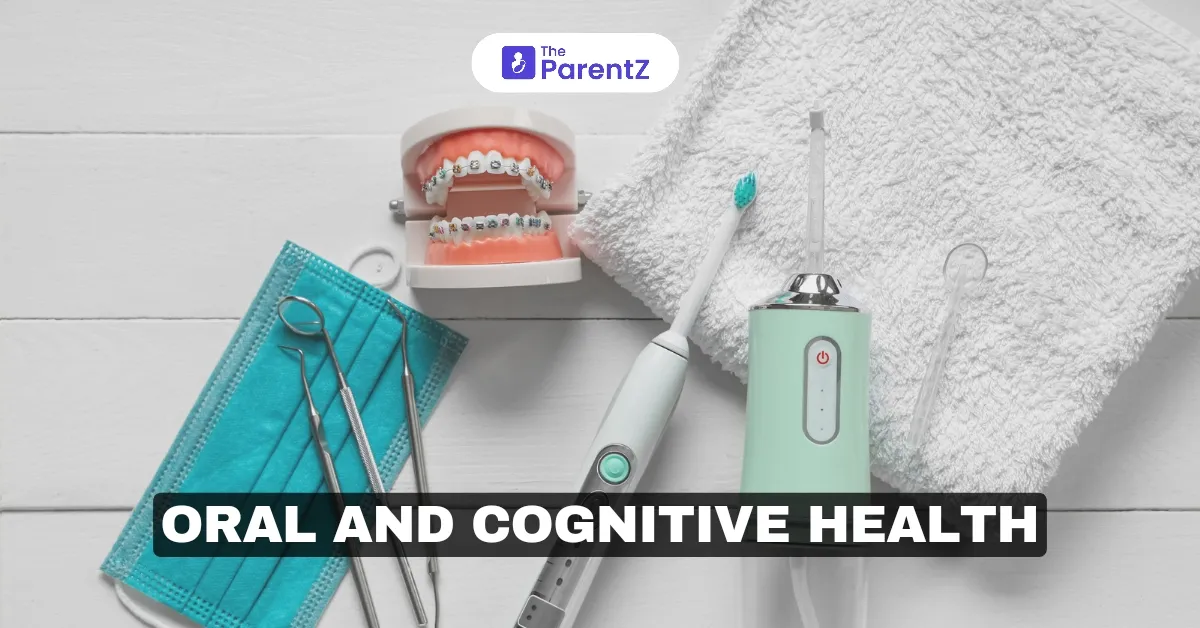Explore the connection between oral health and cognitive development in children. Learn how dental hygiene impacts brain function, academic performance, and overall well-being.
Oral health plays a critical role in a child’s overall development, extending beyond the mouth to impact cognitive growth and academic success. Poor dental health can lead to pain, infections, and missed school days, directly affecting learning and concentration.
Understanding Cognitive Development
Cognitive development refers to a child’s ability to think, learn, and solve problems. It encompasses:
• Memory
• Attention
• Language skills
• Critical thinking
• Decision-making
Optimal cognitive growth relies on various factors, including nutrition, mental stimulation, and overall health—oral health being a significant yet often overlooked contributor.
The Connection Between Oral Health and Cognitive Development
1. Impact of Dental Pain on Concentration:
• Persistent toothaches or gum infections can distract children, reducing focus and hindering learning abilities.
• Discomfort often leads to poor classroom performance and decreased participation.
2. Missed School Days:
• Dental issues are one of the leading causes of school absenteeism, depriving children of valuable learning opportunities.
3. Nutrition and Cognitive Growth:
• Poor oral health can limit a child’s ability to chew and consume nutrient-rich foods, leading to deficiencies that affect brain development.
4. Systemic Inflammation:
• Oral infections can trigger inflammation that may impair cognitive functions by affecting neural pathways.
Common Oral Health Issues Affecting Cognitive Development
1. Dental Caries (Cavities):
• Untreated cavities are a leading cause of dental pain and infections in children.
2. Gingivitis:
• Early-stage gum disease can cause discomfort and affect overall health.
3. Malnutrition Due to Oral Problems:
• Missing or painful teeth can limit dietary choices, reducing essential nutrients like omega-3s and iron, which are vital for brain health.
Steps to Promote Oral Health for Better Cognitive Development
1. Start Early with Dental Hygiene:
• Clean your child’s gums with a damp cloth even before teeth emerge.
• Begin brushing with fluoride toothpaste as soon as the first tooth appears.
2. Encourage a Balanced Diet:
• Include fruits, vegetables, whole grains, and protein-rich foods.
• Limit sugary snacks and drinks to prevent cavities.
3. Regular Dental Checkups:
• Schedule visits every six months to catch and treat issues early.
4. Teach Proper Oral Hygiene Habits:
• Show your child how to brush and floss effectively.
• Supervise brushing until they can do it independently (around age 8).
5. Address Dental Issues Promptly:
• Don’t delay treatment for cavities, infections, or misaligned teeth.
The Role of Parents and Educators
Parents and teachers play a vital role in maintaining and promoting oral health.
• At Home:
• Create a consistent oral care routine.
• Provide healthy, nutrient-dense meals.
• At School:
• Incorporate oral health education into the curriculum.
• Encourage students to prioritize hydration and avoid sugary snacks.
Research Insights
Studies have shown:
• Improved Oral Health = Better Academic Performance:
Children with good oral health demonstrate higher grades and better attendance.
• Oral Health Impacts Sleep:
Dental issues can disrupt sleep, impairing memory and learning capabilities.
Conclusion
Oral health is more than just a bright smile; it plays a crucial role in cognitive development and overall well-being. By ensuring proper dental care, parents and caregivers can provide children with the tools they need for both physical and intellectual growth. Start early, educate often, and prioritize oral hygiene to unlock your child’s full potential.
References:
• American Academy of Pediatric Dentistry. The Importance of Oral Health in Child Development.
• World Health Organization. Oral Health: A Key Indicator of Overall Health.
• National Institute of Dental and Craniofacial Research. Oral Health and Cognitive Function.








Be the first one to comment on this story.